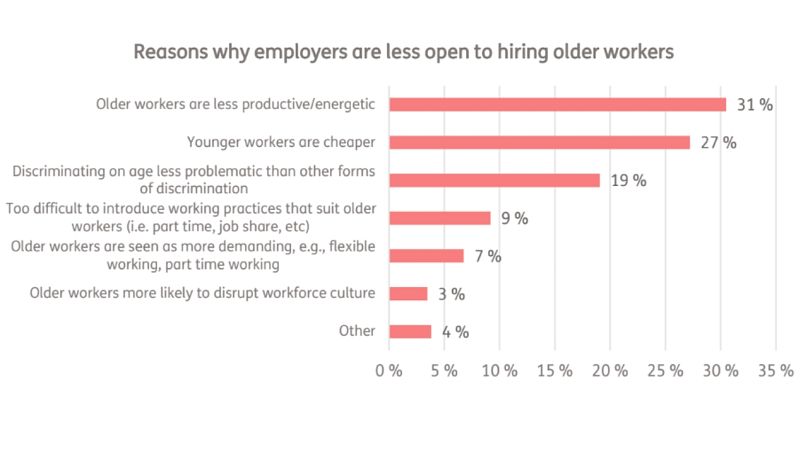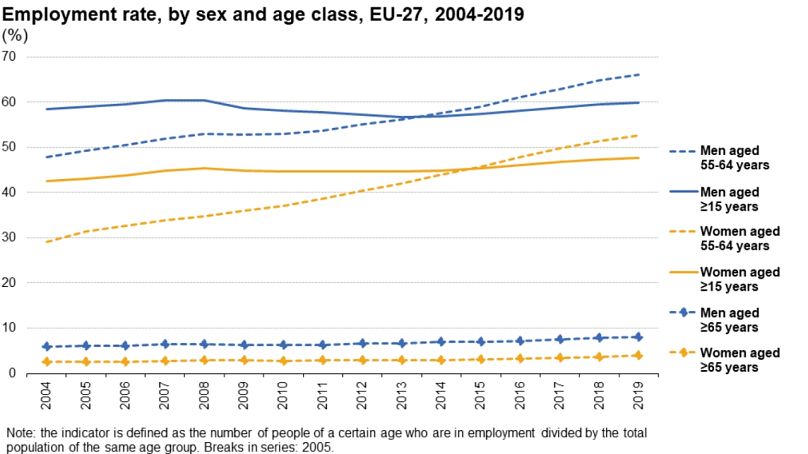What's Europe's stance on older people in the workforce? Euronews Business takes a look at the findings of a recent study.
A recent study uncovered concerning attitudes toward hiring practices among older employees in the workforce.
In the survey conducted by retirement specialist Just Group, among 1,000 retired and semi-retired individuals aged 55 and above, over half (55%) expressed the belief that employers are less inclined to hire older workers, while only 17% disagreed.
Approximately 31% of respondents believed employers view older workers as less productive and energetic. Another 27% perceived it as a cost-saving measure for companies to hire younger employees. About 19% pointed out that age discrimination seemed less troubling to companies than other biases.
A minority also thought that employers perceive older workers as more demanding and likely to disrupt workplace culture.
“Fair access to the labour market in later life is important because it allows over 55s the opportunity to get back on track should they face an unexpected life event that forces them out of the labour market," Stephen Lowe, group communications director at Just Group, said.
“Without this equal opportunity they face the triple whammy of loss of income, loss of opportunity to save more into their pension and possibly being forced to raid their pension earlier than expected to make ends meet.”
Nearly half (45%) of the respondents also highlighted that they retired earlier than planned due to involuntary reasons, including health issues, redundancy or job scarcity, and caregiving responsibilities.
However, according to Eurostat, in 2019, individuals aged 55-64 showed higher employment rates than the average for all adults, with men at 66.0% and women at 52.6%. The surge in employment rates within this age group between 2004 and 2019 was a common trend across many European countries.
Slovakia and Austria notably experienced over a doubling of employment rates within this demographic. In 2019, Sweden, Germany, Estonia, and Denmark surpassed 70.0% employment rates, while six EU member states—Poland, Slovenia, Romania, Croatia, Greece, and Luxembourg—registered rates below 50.0% for this age group.
However, some of these numbers don't represent the entire picture.
A study by Age Platform Europe, an association of non-profit groups advocating for older individuals, suggests that the EU framework continues to neglect older workers. The report raised concerns that decisions made by European and national courts still seem to reflect prejudiced and obsolete perceptions regarding the capabilities of older individuals in the workforce.
Twenty years after the implementation of the EU’s Employment Framework Directive in 2000, which introduced age discrimination laws in various states, worries are still present regarding whether sufficient steps have been taken to facilitate the engagement of older workers in jobs.
Nena Georgantzi, policy coordinator in human rights and non-discrimination at Age Platform Europe, told the Financial Times that more radical changes are still required.
"Age discrimination is still embedded in the system and in society," Georgantzi said.
"There is an imbalance between the rhetoric of policy and the reality."













